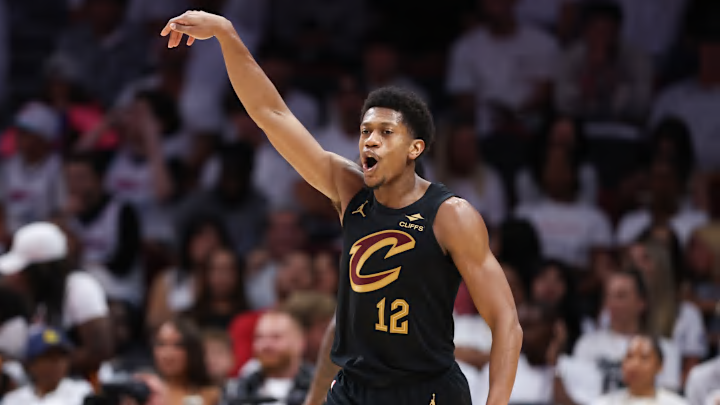The Cleveland Cavaliers had a chance to clear some money off of their books this summer.
In fact, it wasn't merely a chance -- it was the path they were heading toward. In an NBA where the penalties on expensive teams are draconian, the Cavaliers were naturally going to let off the pressure this summer. Caris LeVert was a pending free agent, and letting him walk this summer would have given them the financial flexibility to stay under the second tax apron.
Cleveland knew the financial wall they were screaming toward. They knew that breakout star Evan Mobley was likely to qualify for a salary increase once he made All-NBA or won Defensive Player of the Year. They were not caught off guard. If their goal was managing their payroll and avoiding the harsh penalities of the second tax apron, they could have kept LeVert and no one would have batted an eye. They were the No. 1 seed - breaking up the rotation at all was a risky move, so they had cover and justification.
Yet the Cavaliers did take a swing. Rather than lose LeVert for nothing this summer, they traded him and Georges Niang to the Atlanta Hawks for veteran forward De'Andre Hunter. The former teammate of Ty Jerome is under contract for two more seasons at an average of $24 million per season; his addition guarantees that Cleveland will be above the second tax apron if they keep everyone else around.
Was that sort of financial commitment worth it? This team is going to be very good for a long time if Mobley, Garland and Mitchell all stay together. Should the Cavaliers have been slower to start the financial clock? Was Hunter the right player to push in the chips for?
Through four truly historic playoff games, the answer is a resounding yes.
The Cavaliers made the right trade
If you would like a more detailed breakdown of the comprehensive beatdown the Cavaliers laid on the Miami Heat, you can dig into some of the numbers here. The core truth is this: Cleveland won its first-round series by the greatest scoring margin in NBA history, outscoring the Heat by 122 points in four games.
In doing so, the Cavaliers announced that they are a bona fide contender. Their up-and-down finish to the season was more a result of the extended regular season and the reality that they effectively locked up their playoff position weeks ahead of the end of the season. The motivation wasn't there.
It was certainly present once the playoffs began, and the Cavaliers unleashed an unstoppable offense on a fairly good Miami defense. They had no answers, and it's hard to see how most defenses would. The Cleveland offense is good enough to win a title.
When you are a true contender, you make decisions that maximize your present at the cost of some future discomfort. This is the kind of team worth making a win-now trade for. Next year's Cavaliers team will be more expensive, but (1) they are good enough that they don't need flexibility to land a key player, and (2) they have a chance to win it all this season that matters a great deal.
What's more, Hunter proved himself worthy of being the player this team chose to trade for, over other options, including Marcus Smart and Cam Johnson. He started slowly, going 0-for-4 in Game 1, and perhaps some questions were raised.
Then he steadily got better game after game. He scored 12 points in Game 2, 21 points as the wingman of an incendiary Ty Jerome game in Game 3, then had 19 on 6-for-11 shooting in Game 4 before the team called things off early and pulled their rotation players from what would eventually be a 55-point drubbing.
Hunter's smooth jumper is a weapon that stretches opposing defenses in impossible ways. Defending the high-octane attack of this team's three-headed guard trio while also taking away vertical action at the rim and somehow sticking to shooters like Hunter, Max Strus and Sam Merrill? Impossible.
The Cavaliers don't have to win the title to prove this trade was worth it; they need to be a legitimate threat to do so. That looks to be the case, and Hunter looks like a player who can help them win it. The future is a bit trickier to navigate, but the present is as bright as it can be.
